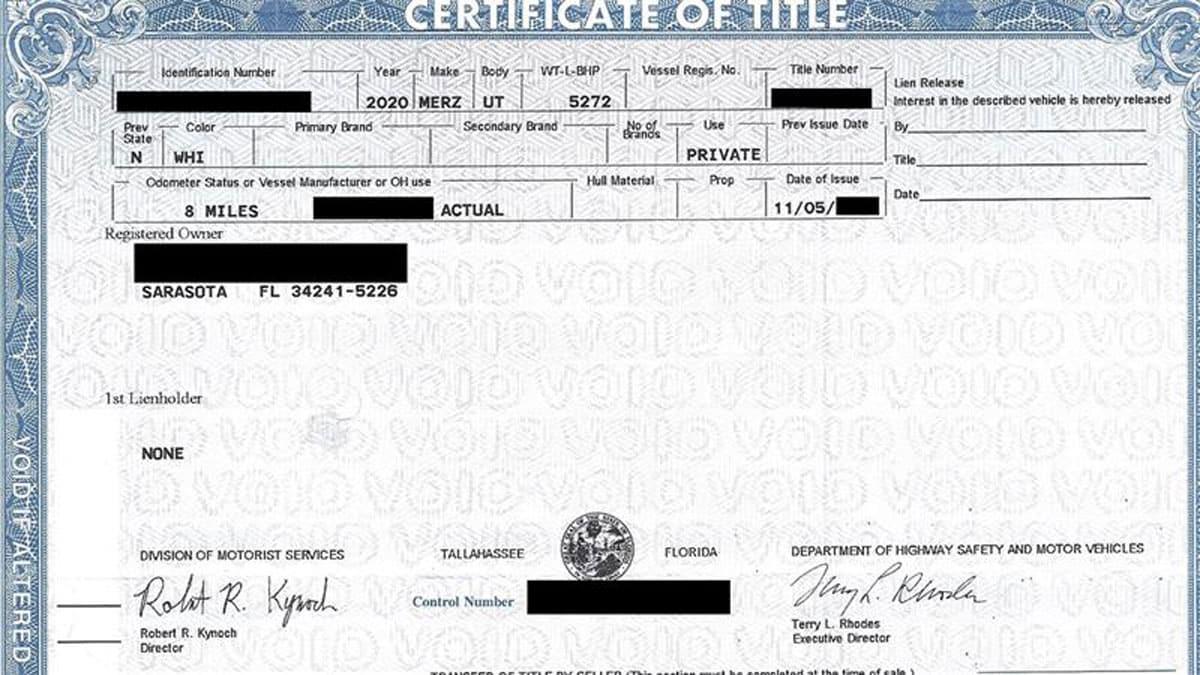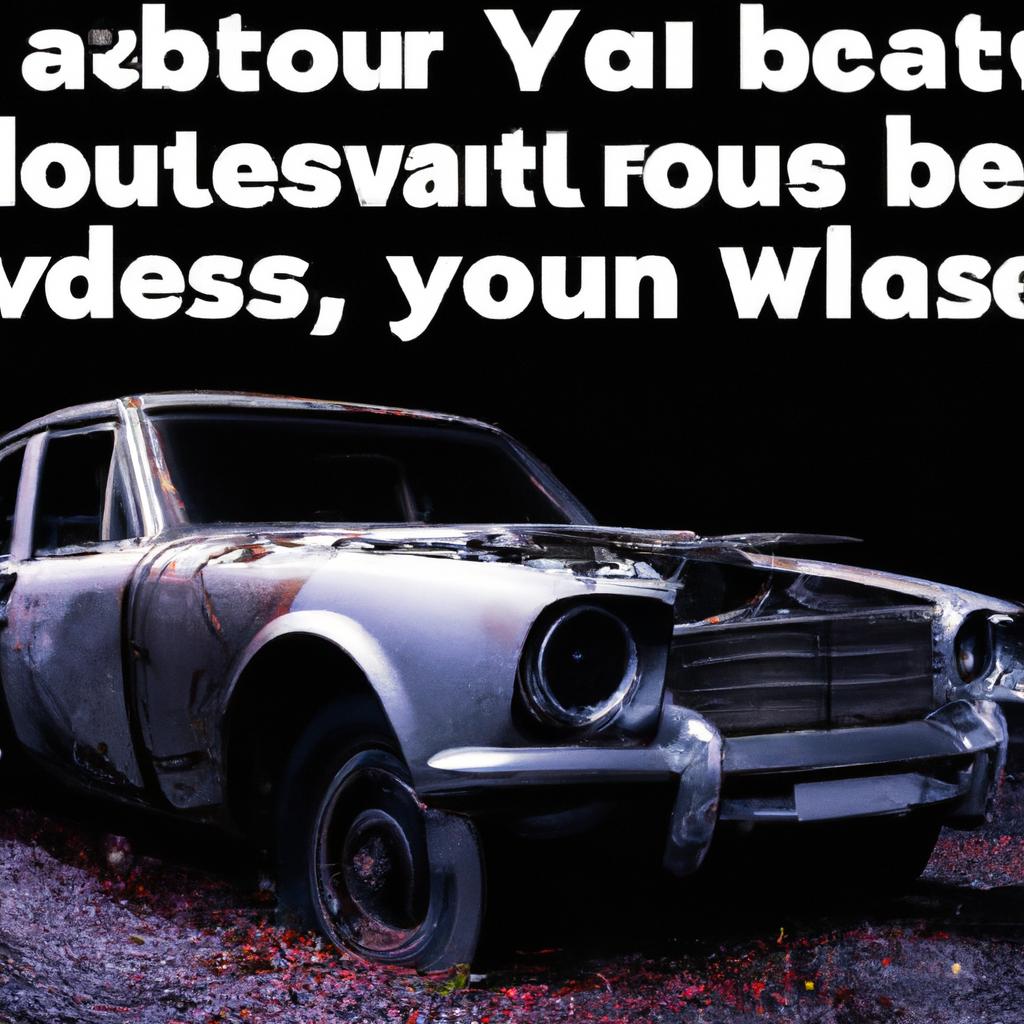When our time on earth ends, many aspects of our existence cease, including the use of our automobiles. Have you ever pondered what becomes of these cherished assets when we are no longer present to drive them? Let’s delve deeper into the path that vehicles take when their owners depart from this life.
Fate of a Deceased Individual’s Car
When someone we care about dies, their car is usually one of the possessions that need to be addressed. The procedure for managing a deceased person’s car can differ based on several factors such as the existence of a will, the inheritor of the vehicle, and the laws of the state where the deceased resided.
Often, the car is transferred to the beneficiary named in the deceased person’s will. The beneficiary will need to navigate the appropriate legal procedures to change the vehicle’s title into their name, typically involving probate court and acquiring a new title from the DMV.
If the deceased person did not leave a will, the process of determining who inherits the car can become more complicated. It may involve going through the probate process to identify the rightful heir or adhering to the laws of intestacy in the state where the deceased resided.
Ultimately, the fate of a deceased person’s car will depend on a variety of factors and can differ from case to case. It is crucial to consult with a legal expert to ensure that the vehicle is transferred legally and appropriately.
Change of Vehicle Ownership After Death
When a loved one dies, their assets, including vehicles, need to be transferred to the appropriate parties. The process of changing vehicle ownership after death can seem complicated, but it is crucial to ensure that the transfer is done correctly to avoid any future legal complications.
One method for transferring ownership of a vehicle after death is through probate. This process involves the court appointing an executor to manage the deceased person’s estate, including vehicles. The executor will then be responsible for transferring the vehicle to the appropriate beneficiaries as outlined in the deceased person’s will.
Another method for transferring vehicle ownership after death is through a transfer-on-death (TOD) designation. This allows the deceased person to designate a specific individual to receive ownership of the vehicle upon their death. The designated individual will need to provide the necessary documentation to the Department of Motor Vehicles to complete the transfer of ownership.
Choices for Selling or Donating the Vehicle
When it comes to deciding what to do with a vehicle after someone dies, there are several choices available. Whether you choose to sell the vehicle or donate it, there are a few things to consider before making a decision.
Selling the vehicle:
- One choice is to sell the vehicle privately or through a dealership. This can be a good way to get some extra money to help cover any expenses related to the estate.
- Another choice is to trade in the vehicle if you’re looking to purchase a new one. This can be a convenient way to dispose of the old vehicle while getting a discount on a new one.
Donating the vehicle:
- Donating the vehicle to a charitable organization is a wonderful way to contribute to the community and potentially receive a tax deduction.
- Some charities will even pick up the vehicle for free, making the process even easier for you.
Whether you choose to sell or donate the vehicle, it’s important to consider the best option for your situation.
Guidelines for Managing Vehicle Assets in Estate Planning
One crucial aspect to consider when it comes to estate planning is how to manage vehicle assets after someone dies. Ensuring that the process is smooth and efficient can help alleviate stress during an already challenging time.
When a person dies, their vehicle assets may need to go through a process known as probate. Probate is the legal process of validating a will and distributing assets according to the deceased person’s wishes. If there is no will in place, the state’s laws will determine how the vehicle assets are distributed.
It is important to keep detailed records of the vehicles owned by the deceased person, including titles, registration documents, and any outstanding loans or liens. Having this information readily available can help expedite the probate process and ensure that the vehicles are transferred to the appropriate heirs or beneficiaries in a timely manner.
Conclusions and Insights
As we navigate the complexities of life and death, it’s important to consider all aspects of our belongings, including our vehicles. Whether passed down to loved ones, sold to someone new, or simply sitting idle, the fate of a vehicle after someone dies can vary greatly. By understanding the options available and planning ahead, we can ensure that our vehicles are handled with care and consideration when the time comes. While the future may be uncertain, taking steps to address this aspect of our estate can bring peace of mind and clarity to an otherwise difficult transition. Our vehicles may hold memories of the past, but it is our loved ones who hold the keys to the future.

What Happens to Your Beloved Vehicles After You Pass Away?
When you pass away, your loved ones will need to make important decisions about how to handle your assets, including any vehicles you may own. Here are some common scenarios that may unfold:
Selling the Vehicles
One option for your loved ones is to sell your vehicles. This can help them generate some extra cash to cover expenses or distribute among beneficiaries. Selling a vehicle can be done privately or through a dealership or online platform.
Transferring Ownership
If your vehicles are to be passed on to specific individuals, the ownership will need to be transferred. This process typically involves filling out paperwork with the local Department of Motor Vehicles (DMV) or equivalent agency.
Donating to Charity
Another option is to donate your vehicles to a charitable organization. This can be a fulfilling way to give back to the community and may also provide tax benefits for your estate.
Keeping the Vehicles
If your loved ones wish to keep your vehicles for sentimental or practical reasons, they can choose to do so. They will need to ensure that the vehicles are properly insured and maintained.
Benefits and Practical Tips
- Discuss your wishes for your vehicles with your loved ones ahead of time.
- Keep all vehicle-related documents in a safe and easily accessible place.
- Consider naming a specific individual as the beneficiary of your vehicles in your will.
- Inform your executor or trustee about the location and ownership of your vehicles.
Case Studies
| Name | Scenario | Outcome |
|---|---|---|
| John Smith | Vehicles sold | Proceeds distributed among beneficiaries |
| Sarah Johnson | Vehicles donated to charity | Tax benefits received for estate |
First-hand Experience
My grandmother recently passed away, and she left behind a vintage car that held sentimental value for our family. After discussing it with other family members, we decided to keep the car and take turns driving it on special occasions. It has become a cherished reminder of her legacy.
Remember that planning ahead and communicating your wishes regarding your vehicles can help ease the burden on your loved ones during a difficult time. Whether it’s selling, transferring ownership, donating, or keeping the vehicles, there are options available to ensure that your assets are handled in accordance with your wishes.


